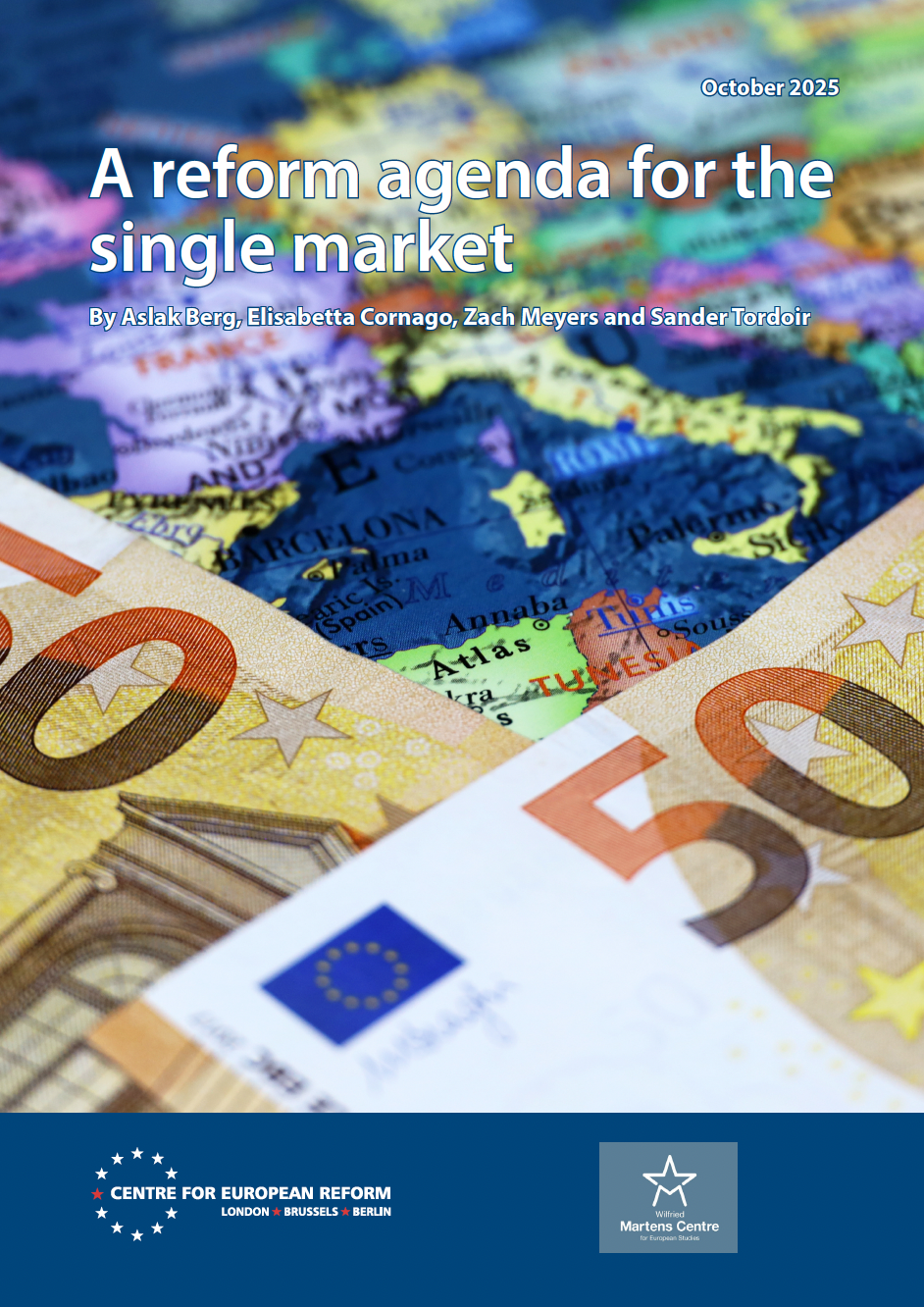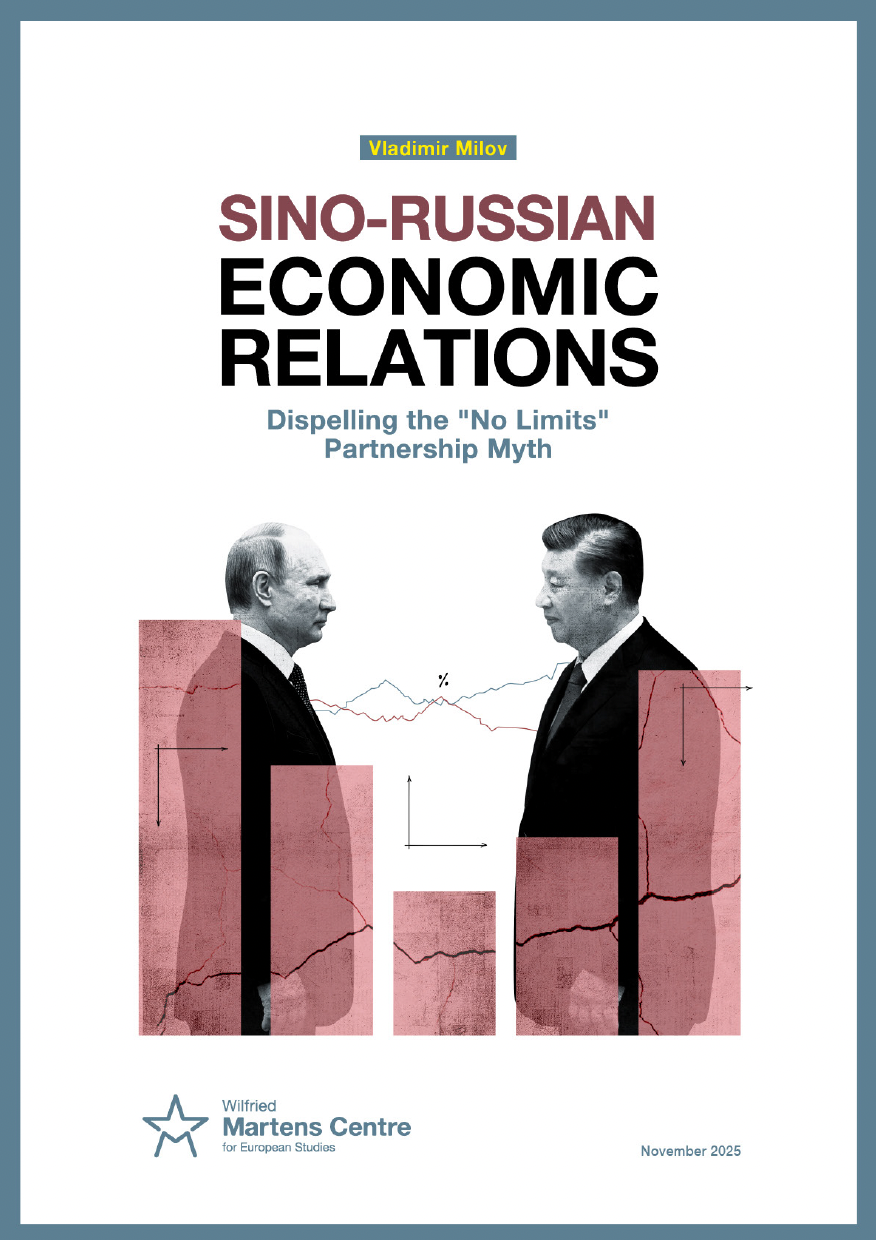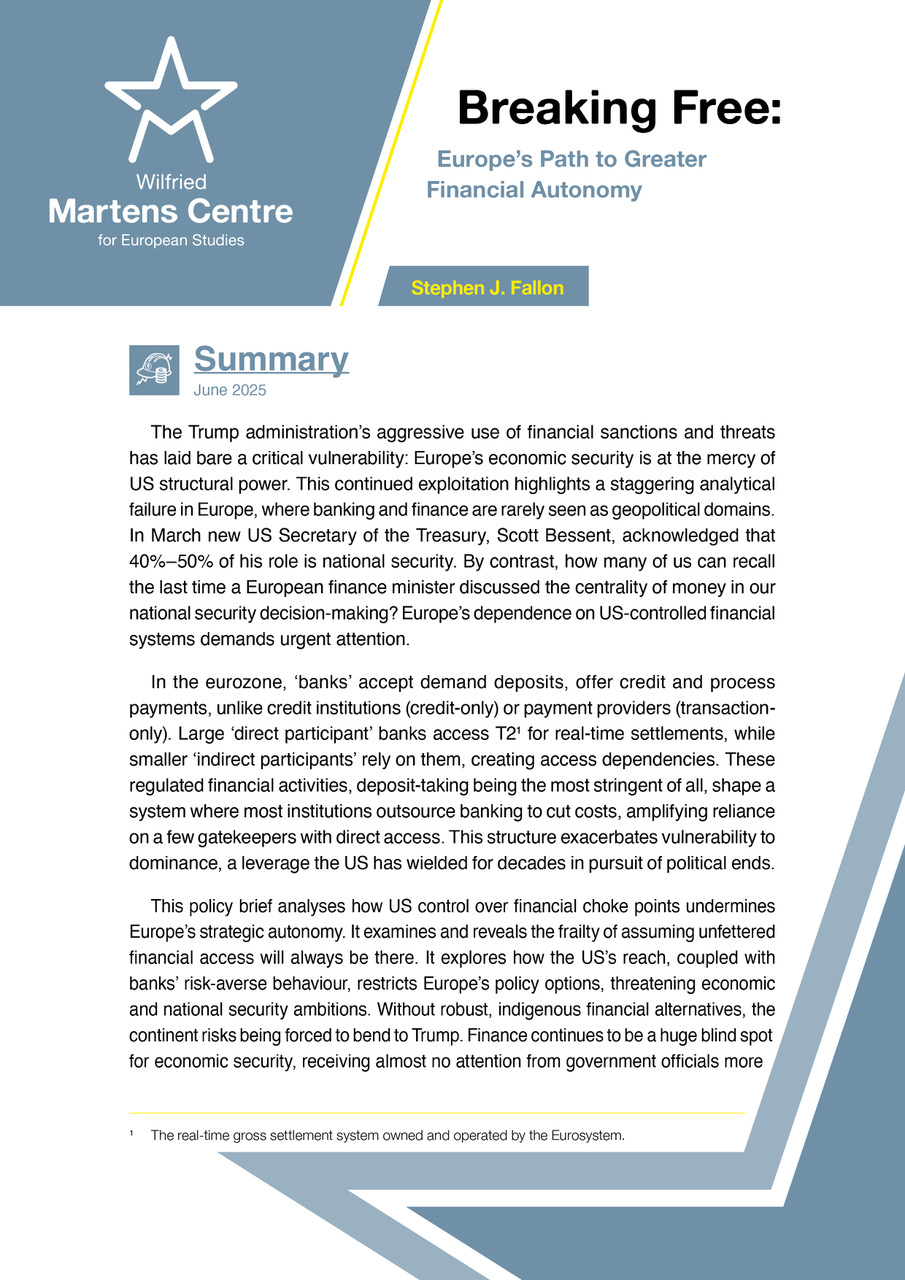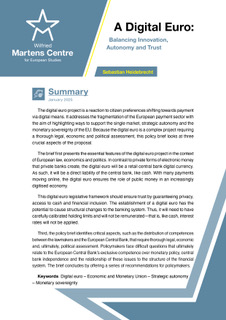Related publications
-

Other
A reform agenda for the single market
-

Other
Sino-Russian Economic Relations: Dispelling the “No Limits” Partnership Myth
-

Other
Working Migrants Valued for Their Economic Contribution
-

Other
Strategic Policy Recommendations for the European People’s Party
-

Research Papers
Towards a New Order? The Economic Programmes of Right-Wing Populist Parties
-

Other
From Taiwan to Malaysia: The Silicon Alley of the East
-

Policy Briefs
Breaking Free: Europe’s Path to Greater Financial Autonomy
-

Policy Briefs
A Digital Euro: Balancing Innovation, Autonomy and Trust



















